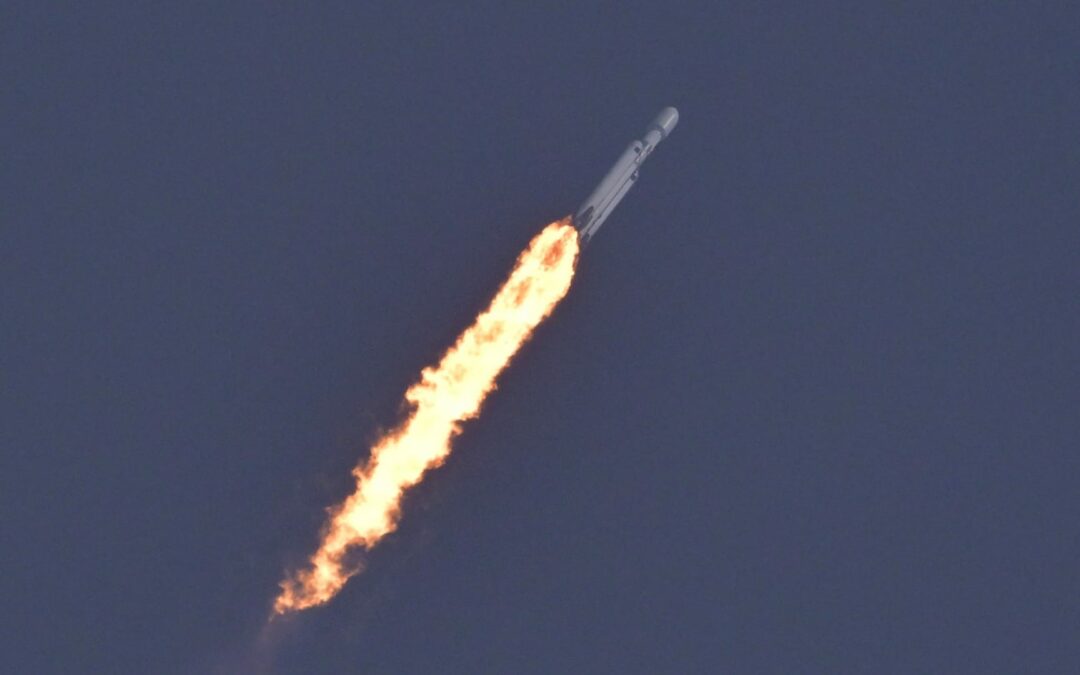A SpaceX Falcon Heavy rocket launches on its mission with a classified payload for the U.S. Space Force at Cape Canaveral, Florida, U.S., November 1, 2022.
Steve Nesius | Reuters
The U.S. Space Force assigned 21 rocket launches to SpaceX and United Launch Alliance, worth about $2.5 billion in total, the military branch told CNBC.
Space Force’s Space Systems Command on Tuesday announced the mission assignments, which represent the last round of orders under a multi-year program called National Security Space Launch (NSSL) Phase 2.
The final batch of assignments were split almost evenly, according to Col. Doug Pentecost, the deputy program executive officer of the Space Force’s Space Systems Command: ULA received 11 missions, valued at $1.3 billion, and SpaceX received 10 missions, valued at $1.23 billion.
Sign up here to receive weekly editions of CNBC’s Investing in Space newsletter.
Space Systems Command said the missions are scheduled to launch over the next two to three years. ULA, a joint venture of Boeing and Lockheed Martin, will use its soon-to-debut Vulcan rocket for the 11 missions, while SpaceX will fly seven missions with its Falcon 9 rocket and three missions with its Falcon Heavy rocket.
SpaceX adds market share
The Falcon Heavy rocket for the USSF-44 mission rolls out to the launchpad on Oct. 31, 2022.
SpaceX
Space Force expanded the NSSL Phase 2 program significantly since naming SpaceX and ULA as its two launch providers in 2020.
Originally, Phase 2 was to consist of 34 missions. Space Force had previously announced that of mission assignments, 60% would go to ULA and 40% to SpaceX.
But increased demand for national security launches grew Phase 2, and Space Force has assigned 48 missions over the course of the program. In the end, Phase 2 was closer to an even split, with Elon Musk’s company receiving contracts for 22 missions to ULA’s 26 missions – or 46% share to 54%.
Pentecost said in a statement to CNBC that Space Force assigned more missions to SpaceX than previously expected “based on the Government assessment of readiness.”
“It is imperative to rapidly deliver critical space capabilities to the Joint Warfighter as soon as they are ready to be launched – we cannot leave capability sitting on the ground,” he said.
SpaceX’s Falcon 9 and Falcon Heavy rockets are operational and certified to fly national security launches, while ULA’s Vulcan has yet to launch to orbit and receive Space Force certification.
The final Phase 2 assignments come as Space Force prepares to ramp up the NSSL program even further with Phase 3. The military agency this year kicked off the process to buy an estimated 90 launches in the next round.
Pentecost’s division will soon begin the process of reviewing companies’ Phase 3 bids and expects to announce the winners next October.









